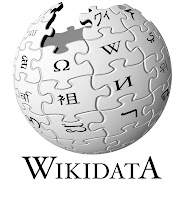
So what’s interesting about the article is that it’s written from an economist’s point of view. I’ve always thought of economics as the most hopelessly theoretical of the social sciences, and the fact that England produces the brightest economists in the world would seem to bear that out. But while the commercialisation of the Internet has so far been a hit-and-miss proposition, it turns out that economics explains a lot about how the information age has developed:
- The abundance of data available today is staggering because it is so cheap to produce, store and access.
- The cost of our time required to sift through this increasing abundance keeps increasing, creating a scarcity of attention.
- Data searching tools are employed in an attempt to save us time (Google is the most financially successful internet-based company ever).
- Invariably, the speed of data transfer becomes more important than its depth (I’m thinking of Twitter here).
All of this, according to Nicholson, is what is driving online behaviour and culture. If we accept the author’s assertion that attention is what turns data into knowledge, we have a knowledge crisis looming.
The abundance of information and scarcity of attention is turning knowledge into a flow rather than a stock, a river rather than a lake. Encyclopedia Britannica has become Wikipedia. Wikipedia has more than 3 million articles in it now, all created by or edited by anyone who wants to. Some of them are experts, but the point is, you just don’t know if the article you are using was created by one. Or if it was created by a unremarkable person with delusions of expertise. In Nicholson’s words, Wikipedia is the Cult of the Amateur.
But it’s built upon the past work of experts, so we’re going to need those traditional experts again, and soon. Crowd Wisdom doesn’t get us the kind of breakthrough, outside-the-box thinking that we got from people like Newton, Einstein or Watson & Crick. That kind of thinking took considerable time and attention.
Nicholson says our challenge in the information age is to “[build] up a sufficient internalized structure of concepts to be able to link with the online store of knowledge.” In other words, to be smart enough to be able to use the vast data resource available to us.
I think our challenge is to understand the difference between raw data and true knowledge, and to collectively convert as much raw data as we can into wisdom. Knowledge comes from the experience, direct or indirect, of using data for an outcome. It’s the application of data for a purpose. Knowledge requires attention and intent. And since we’re not all Einsteins, or even Brysons, [1] our individual knowledge creation will require some focus.
The real sum of all human knowledge is a vast collection of tiny (and sometimes not so tiny) points of expertise. Information technology’s best role is to facilitate the navigable networking of those points. And it all starts with our scarce attention.
Is there a lesson for marketing in any of this? Marketing people have known for a long time now that the consumer fights commercial message abundance with attention scarcity. This means:
- Marketing needs to focus less on the quantity of the message and minimising the cost per exposure, and focus more on getting a relevant message to the people most likely to accept it and act on it.
- Marketing needs to start with a powerful human thought, not a powerful technology. The medium is not the message, only part of it.
- Marketing agencies need to think of themselves as their clients’ personal Wikipedia, at least in the realm of marketing. Less proprietary attitude. More open, shared thinking for the creation of marketing wisdom.
My head hurts. I need to go for a ride.
- “A Short History of Nearly Everything”, Bill Bryson, 2003.




